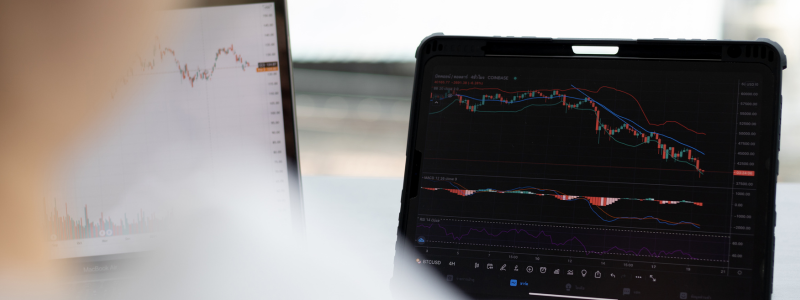
Online brokers
Online brokers have revolutionized the way investing in financial markets, giving investors the opportunity to trade quickly and efficiently from the comfort of their homes. With the growing popularity of these financial intermediaries, it is important to understand how they work and what aspects to consider when choosing one to operate with. In this text we will explore in detail the world of online brokers, analyzing their operation, regulation, costs, and other important aspects.
What is an online broker and how does it work?
An online broker is an online trading platform that allows investors to buy and sell financial assets, such as stocks, currencies, raw materials, among others. These intermediaries facilitate transactions between investors and financial markets, offering a wide range of financial instruments and trading tools. Online brokers operate through digital platforms, which allow investors to carry out operations in real time from anywhere with an internet connection.
What are the advantages of operating online?
One of the main advantages of operating with an online broker is the convenience and flexibility they offer. Investors can trade in real time from anywhere with an internet connection, eliminating the need to go to a physical branch. Additionally, online brokers typically offer lower commissions than traditional brokers, which can result in lower transaction costs for investors. Another advantage is the wide range of financial instruments and analysis tools they offer, allowing investors to diversify their investments and make informed decisions.
How to choose an online broker?
When choosing an online broker, it is important to consider several aspects, such as regulation, operating costs, the quality of the trading platform, the variety of financial instruments available, among others. It is essential to choose a broker regulated by a recognized financial organization, since this guarantees the security of funds and transparency in operations. Additionally, it is important to review trading costs, such as commissions and spreads, to ensure they are competitive. It is also advisable to test the broker’s trading platform and verify that it is easy to use and has the necessary tools to operate effectively.
What are the risks of operating with an online broker?
While trading with an online broker can be convenient and profitable, it also carries certain risks that investors should be aware of. One of the main risks is the volatility of financial markets, which can result in significant losses for investors. Additionally, there is a risk of fraud and price manipulation by some unregulated brokers, so it is crucial to choose a reliable and regulated broker. Another risk is the possibility that the broker’s trading platform presents technical failures, which could affect the execution of operations and generate losses for investors.
How to manage risk when operating with an online broker?
To manage risk when trading with an online broker, it is important to diversify investments and establish clear limits regarding the size of operations and the level of leverage used. It is also advisable to use stop-loss and take-profit orders, which allow you to limit losses and ensure profits in the event of adverse market movements. Additionally, it is important to regularly monitor open positions and review performance reports to identify potential risk areas and take corrective action accordingly.
What is the role of regulation in this sector?
Regulation plays a fundamental role in protecting investors and the integrity of financial markets. Regulated online brokers are subject to strict rules and controls by financial organizations, which guarantees the security of client funds and transparency in operations. Investors must verify that the broker they operate with is regulated by a recognized body and complies with established standards regarding customer protection and prevention of money laundering. The regulation also establishes minimum capital requirements and guarantees for client deposits, which contributes to the stability and solidity of the broker.
Recent posts
What is a Forex Broker?
March 9, 2024
What is a forex broker? A forex broker, also known as a currency broker or intermediary, is a financial entity that provides access to the…
